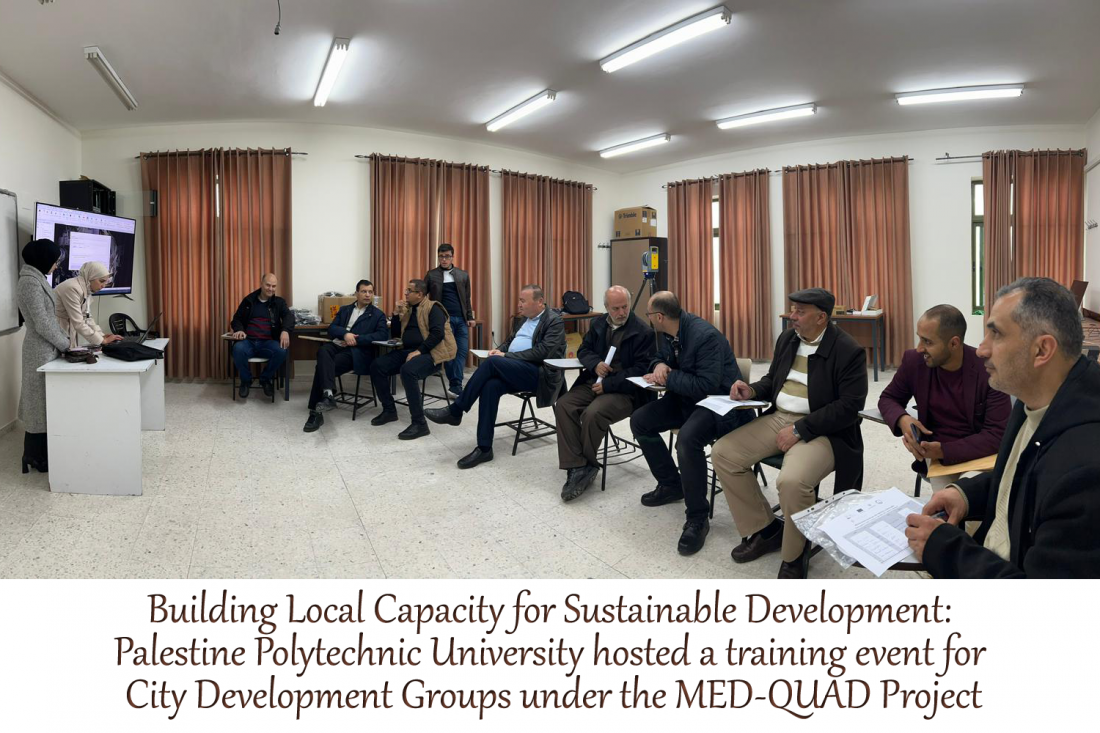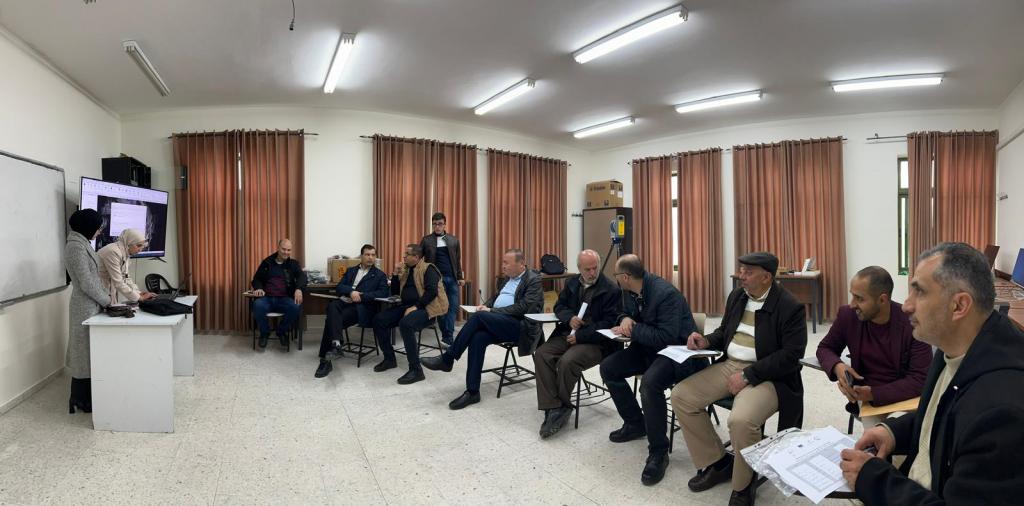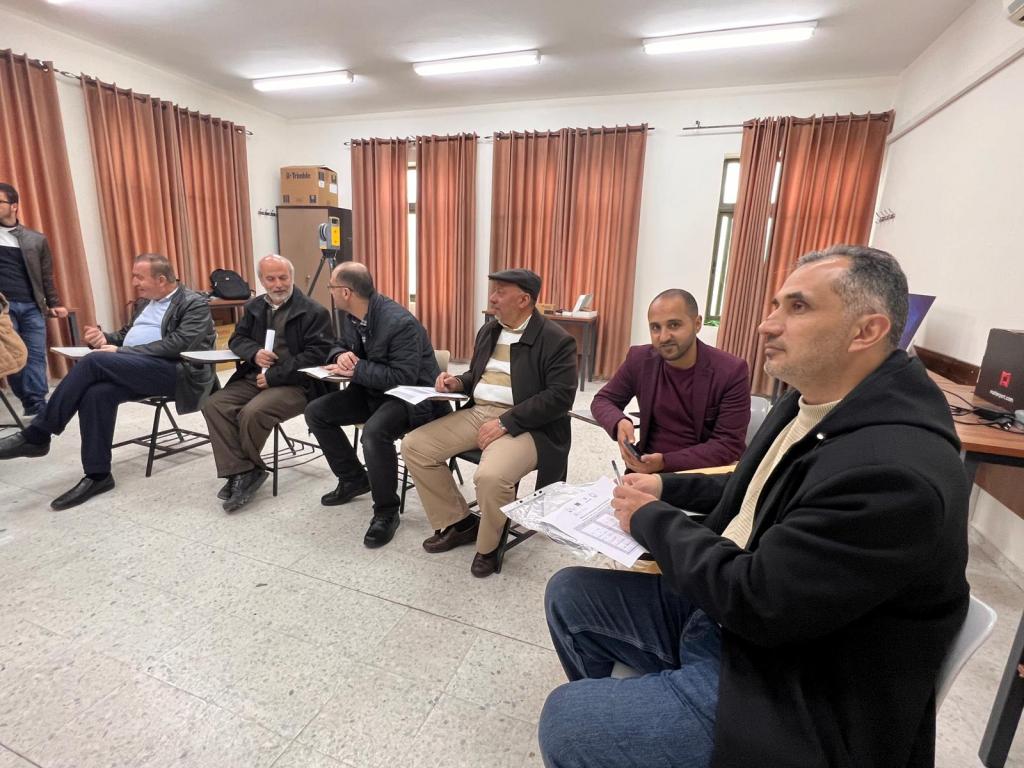MED-QUAD in Palestine promotes City Development Groups for better local development in the tourism sector

On April 10th of 2023, Palestine Polytechnic University organized a training event for City Development Groups (CDG) members by ARCHEO Lab team within the framework of MED-QUAD project. The training event took place in Hebron-Palestine and included the evaluation of the lab resources and applications in the city development activities related to tourism enhancement and culture heritage preservation. The event was organized in collaboration with civil engineering department in the university and the participation of project Scientific Advisory Commitee members.
It’s worth mentioning that the City Development Groups (CDG) play a crucial role in planning and implementing development projects at local level. These groups typically comprise a diverse range of stakeholders, including community members, government officials, civil society organizations, and private sector´s actors. In particular, the Quadruple Helix Approach adopted by the MED-QUAD project foresees the involvement of Higher Education and Research Institutions, Government, Enterprises and Civil Society. By bringing together these different actors and leveraging their respective strengths, CDGs can help to ensure that sustainable development initiatives are responsive to local needs and priorities. In addition, CDGs, under the guidance of the Civic University can help to foster greater participation and ownership of development processes, which can in turn lead to more sustainable and equitable outcomes. Overall, CDGs are an important mechanism for promoting inclusive and sustainable locally-led development. For those reasons, the MED-QUAD project ensured the teams' formation, training, and cooperation at transnational level.
The event used training materials prepared by the University of L’ Aquila (the MED-QUAD project partner from Italy) and focused on the role of the university in city development in the specific field of tourism enhancement and culture heritage preservation. In addition, training and presentation of equipment capacities and usage were delivered by the ARCHEO Lab team and companies’ participants.
Participants´ discussions allowed a better understanding of the aims of the project activities and the experiences that the project partners shared with the Palestinian team. They tackled the prospect of cooperation in relevant scientific research and lab activities.
The training event offered the opportunity to CDG members to meet the results of laser scanning, laser camera, drone photographs obtained for the Mamre (Haram Ramet el-Khalil) historical site in Hebron. The training event was attended by a number of key players in tourism issues in Hebron District including University, Municipality/Department of Tourism and Historical Heritage, businesses, and the society. The event addressed two main aspects regarding tourism sector development; implementation of Virtual Reality tools and using up-to-date 3D photography and laser scanning equipment.











